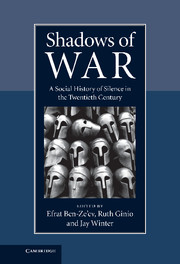Book contents
- Frontmatter
- Contents
- Notes on contributors
- Preface and acknowledgments
- Part I Framing the problem: Multi-disciplinary approaches
- Part II Europe
- Part III Africa
- 6 Silences on state violence during the Algerian War of Independence: France and Algeria, 1962–2007
- 7 African silences: Negotiating the story of France's colonial soldiers, 1914–2009
- 8 Now that all is said and done: Reflections on the Truth and Reconciliation Commission in South Africa
- Part IV The Middle East
- Index
- References
6 - Silences on state violence during the Algerian War of Independence: France and Algeria, 1962–2007
Published online by Cambridge University Press: 04 May 2010
- Frontmatter
- Contents
- Notes on contributors
- Preface and acknowledgments
- Part I Framing the problem: Multi-disciplinary approaches
- Part II Europe
- Part III Africa
- 6 Silences on state violence during the Algerian War of Independence: France and Algeria, 1962–2007
- 7 African silences: Negotiating the story of France's colonial soldiers, 1914–2009
- 8 Now that all is said and done: Reflections on the Truth and Reconciliation Commission in South Africa
- Part IV The Middle East
- Index
- References
Summary
This chapter examines two aspects of colonial violence that have come to occupy a significant place in political, media and intellectual debate on the Algerian War of Independence (1954–62) since the late 1990s in France. The first is torture practised by the French military against Algerians in this period. The second is the 17 October 1961 police repression of Algerian nationalist demonstrations in Paris, during which many dozens were killed. Although these events were both state crimes that the French authorities denied, and were committed during a colonial war the existence of which the French state refused to admit, this chapter will show the different afterlives of these two events. Such differences stem from the presence or absence of individuals and groups willing to speak out about such violence, and the political and wider social context in which such voices could or could not be publicly heard.
Our analysis focuses on the main actors of this violence: both those who suffered violence – the victims – and the perpetrators. However, we do not use the terms ‘victim’ and ‘perpetrator’ unquestioningly. Our discussion charts the complex articulation between individual and social silence and/or forgetting shown by these groups over the decades since 1962, and the various strategies individuals and groups have adopted in order to deal with this past. Our aim is to explore the processes determining the forms and levels of silence regarding both torture and the brutal events of October 1961, and how and why such silences can be transcended, when, and by whom.
- Type
- Chapter
- Information
- Shadows of WarA Social History of Silence in the Twentieth Century, pp. 115 - 137Publisher: Cambridge University PressPrint publication year: 2010
References
- 6
- Cited by

